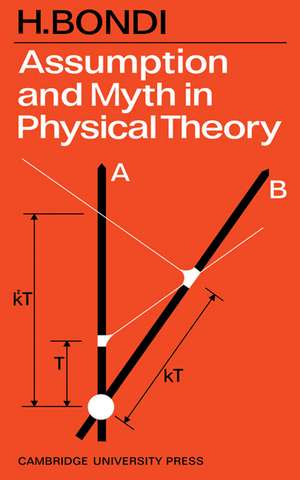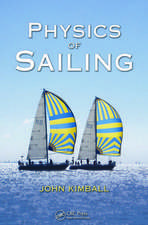Assumption and Myth in Physical Theory
Autor H. Bondien Limba Engleză Paperback – 5 aug 2009
Preț: 361.43 lei
Nou
Puncte Express: 542
Preț estimativ în valută:
69.17€ • 75.11$ • 58.10£
69.17€ • 75.11$ • 58.10£
Carte tipărită la comandă
Livrare economică 22 aprilie-06 mai
Preluare comenzi: 021 569.72.76
Specificații
ISBN-13: 9780521118064
ISBN-10: 0521118069
Pagini: 100
Dimensiuni: 127 x 203 x 6 mm
Greutate: 0.12 kg
Editura: Cambridge University Press
Colecția Cambridge University Press
Locul publicării:Cambridge, United Kingdom
ISBN-10: 0521118069
Pagini: 100
Dimensiuni: 127 x 203 x 6 mm
Greutate: 0.12 kg
Editura: Cambridge University Press
Colecția Cambridge University Press
Locul publicării:Cambridge, United Kingdom
Cuprins
Preface; 1. The limits of theory making; 2. Relativity: its myths and pre-suppositions; 3. Gravitation; 4. The origin of inertia and the universe; Suggestions for further reading; Index.
Descriere
Professor Bondi discusses some of the myths that have grown up around various scientific theories and ideas, particularly special relativity and Mach's principle.










